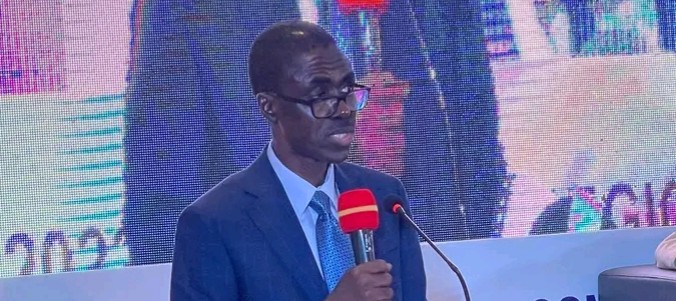The Nigeria Deposit Insurance Corporation (NDIC) has said it has carried out activities of liquidation of 467 insured Banks, in-liquidation comprising 49 Deposit Money Banks (DMBs), 367 Microfinance Banks (MFBs), and 51 Primary Mortgage Banks (PMBs), at end-December 2021.
Managing Director/CEO of the Corporation, Bello Hassan disclosed this at the Technical Assistance Workshop (TAW) under the auspices of the African Regional Committee (ARC) of International Association of Deposit Insurers (IADI) in Abuja on Tuesday.
The MD said these successes recorded by the NDIC in the execution of its mandate, would not have been possible without the strong support and collaborative efforts of other financial safety-net players in Nigeria like the Central Bank of Nigeria CBN, the Federal Ministry of Finance, Budget and National Planning and other members of the FSRCC.
According to him, “the Corporation is a member of the FSRCC, an inter-agency body set-up to coordinate the supervision of financial institutions and deal with matters of common interest and concern to the various regulatory and supervisory authorities in Nigerian financial services industry”.
At the global level, he stated that the NDIC has continuously improved on its collaborative efforts and capacity building in achieving its mandate even in turbulent economic periods.
“The NDIC had engaged with relevant stakeholders by executing various Memorandum of Understandings (MoU) with other deposit insurance agencies, learning from publications/Guidance Notes of IADI and related institutions, exchange of technical assistance, sponsorship attachment programmes and training programmes”.
The MD appreciated the fact that deposit insurance is a knowledge- based service which made the ARC decided to organise this Workshop to sensitise staff of member- institutions to the issues and challenges of Early Detection and Timely Intervention as well as the Deposit Insurer’s Role in Contingency Planning and Crisis Management.
“It is hoped that at the end of the
Workshop, the participants will be better equipped to discharge their functions as deposit insurers. It should be noted that, competent, well-informed professional and skilled staff are critical to effective execution of a deposit insurance mandate”.
Bello noted that the Workshop creates a veritable platform for knowledge and experience-sharing in fulfilling the vision and mission of IADI. “I am optimistic that at the end of this Workshop, strategies for system-wide crisis preparedness and resolution options in promoting financial stability in the region would emerge”.
On her welcome address, the Chairman NDIC Board of Directors, Ronke Sokefun made it known that Nigerian banking system has shown resilience despite the challenges posed by the pandemic, “but the operating conditions for businesses is becoming more challenging as a consequence of the Russia-Ukraine war”.
Sokefun further noted that the Nigerian banking system remained healthy overall as the capitalisation level is above the prudential requirement and the Non-Preforming Loans ratio is also within the requirement at the end of second quarter 2022.
According to her, “It is worthy of note that the theme of todays’ workshop, “Normality in Turbulent Periods: The Stabilising Role of Deposit Insurers” is no doubt topical in the light of the dynamics and emerging threats facing the financial system in recent times and the implications for Deposit Insurers.
“In a world where financial systems are now inextricably linked, robust cooperation is required to ensure financial system stability, and by extension growth and stability of the global economy”, the Chairman said.
She pointed out that NDIC has for a long time since its establishment in 1988 collaborated with other international standard-setters and deposit insurers.
“For instance, NDIC has collaborated in capacity development with the IADI itself, the ARC members, the Financial Stability Institute, the US FDIC, the Islamic Financial Services Board and several other international agencies.
“It is in the spirit of such collaboration that this workshop was organised so as to serve as a forum to dissect pertinent issues, share experiences, compare notes and elevate our understanding of the role of deposit insurers in:
“Early Detection and Timely intervention; Contingency Planning and Crisis Management; Crisis Simulation to strengthen operational resilience; and Contingency Planning Framework for a safer, and more resilient financial system, that is supportive of sustainable economic growth in each jurisdiction”.
She further said the presence of global experts from both fiscal, monetary, supervisory and regulatory agencies, and Deposit Insurers in gathering like this, is a manifestation of the Corporation commitment towards having robust, sustainable system that can detects problem early enough and manage crisis adequately in the banking system to foster financial system stability.
Sokefun welcomed the gathering of deposit insurers, supervisory and resolution authorities, professionals and other players in the financial system around the globe to share their views, experiences and wished them fruitful and insightful deliberations.
NDIC: 467 insured Banks liquidation carried out as at Dec 2021
Please login to join discussion











